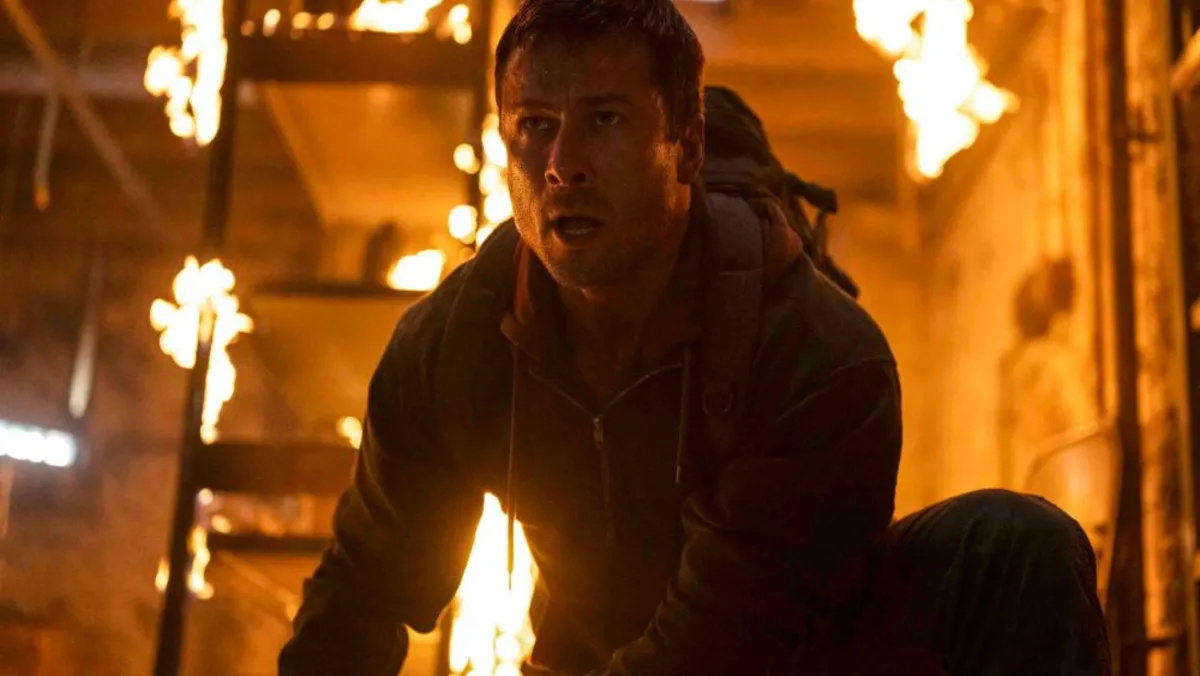
In the 1980s, science-fiction movies painted a dark portrait of the future, often depicting it as a grand nightmare. Films like “Blade Runner”, “Outland”, “The Terminator”, and “Escape from New York” captivated audiences with their chilling visions. Among these cinematic gems is “The Running Man,” an adaptation of Stephen King's 1982 novel penned under the pseudonym Richard Bachman. This film presents a twisted, homicidal television competition show that serves as a thought-provoking precursor to both “Network” and “The Hunger Games.”
Released in 1987, the original “The Running Man” featured the iconic Arnold Schwarzenegger in a role that, while memorable, lacked the finesse of modern filmmaking. However, the latest adaptation directed by Edgar Wright revitalizes the narrative, transforming it into a captivating experience reminiscent of a Bruce Willis thriller. Wright's version boasts crisp staging and a meticulously timed sense of sadism, where the human element rarely overshadows the meticulously crafted chaos.
Glen Powell stars as Ben Richards, a family man thrust into a deadly competition that resembles an updated version of “The Most Dangerous Game.” Powell's sharp gaze and muscular physique embody the film's theme of survival under extreme duress, capturing the essence of a hero sculpted by the harsh realities of a dystopian society. His portrayal evokes a blend of toughness and an underlying sweetness, reminiscent of the heartlessness often associated with ‘80s action heroes.
What sets Edgar Wright apart as a filmmaker is his penchant for over-elaboration, which can sometimes detract from the core narrative. His previous work, “Last Night in Soho,” began as an enchanting exploration of Swinging London but spiraled into a chaotic spectacle. In contrast, “The Running Man” maintains a more restrained tone, adhering to the conventions of mainstream commercial cinema while allowing Wright's fascination with the sociology of sci-fi to shine through.
The film delves into a retro-future America where murder has become a form of entertainment. As the masses consume this violent spectacle like a drug, the story reveals that the only escape from this cycle of violence is through one man’s courage to fight back. This thematic exploration is particularly relevant in today's society, where such dystopian visions feel eerily prescient.
The new “Running Man” introduces a cast of colorful characters, including Bobby T., portrayed by Colman Domingo. Bobby serves as the flamboyant ringmaster of the deadly game, embodying the charm and moral bankruptcy of a media mogul. The studio audience, portrayed as a mindless horde reminiscent of “Idiocracy,” is eager for bloodshed, rooting for the Hunters—an elite team of assassins led by the menacing Evan McCone, played by Lee Pace.
At the heart of this chaos is Dan Killian, played by Josh Brolin, who represents the corruption of the Network. Killian's character is a potent symbol of power, offering Ben Richards a Faustian bargain that thrusts him into the spotlight of the “Running Man” contest. As Ben grapples with his desperate circumstances, including his ailing daughter and crumbling family life, he becomes an unwilling participant in a game designed to exploit his anger.
The film's structure features a repetitive monotony, with Ben encountering allies like his old friend Molie, played by William H. Macy. These interactions provide comic relief as they navigate the absurdity of their situation. A notable action sequence occurs in a hotel where Ben manages to evade capture by causing an explosive distraction, delivering a satisfying nod to traditional action tropes.
Yet, Wright's adaptation aspires to transcend mere action. With King as one of the executive producers, the film seeks to explore deeper themes, introducing characters like a jittery zine writer played by Michael Cera, who embodies the struggles of everyday citizens in a world gone mad. As Ben evolves into an unexpected leader, branded with the slogan “Richards lives!”, the film grapples with the duality of reality television as both a reflection of societal decay and a potential catalyst for revolution.
Ultimately, “The Running Man” serves as a powerful commentary on the state of society, blending thrilling action with poignant social critique. While the film acknowledges the absurdity of a world enthralled by violence, it also hints at the possibility of change through the right hero. As viewers immerse themselves in this dystopian narrative, they are reminded of the thin line between entertainment and reality—a theme that resonates deeply in today's cultural landscape.